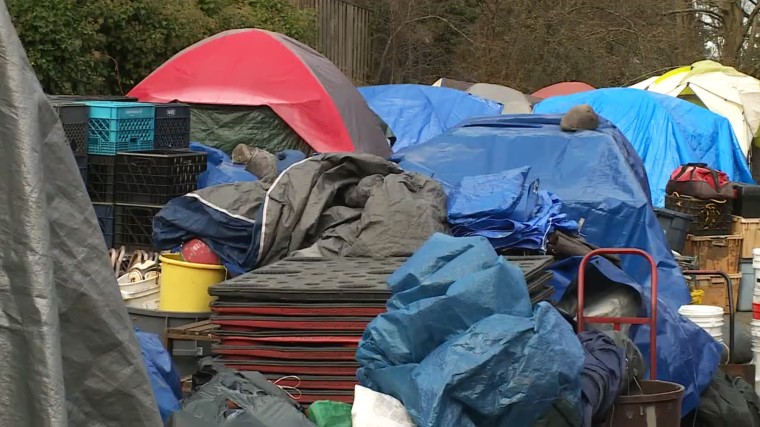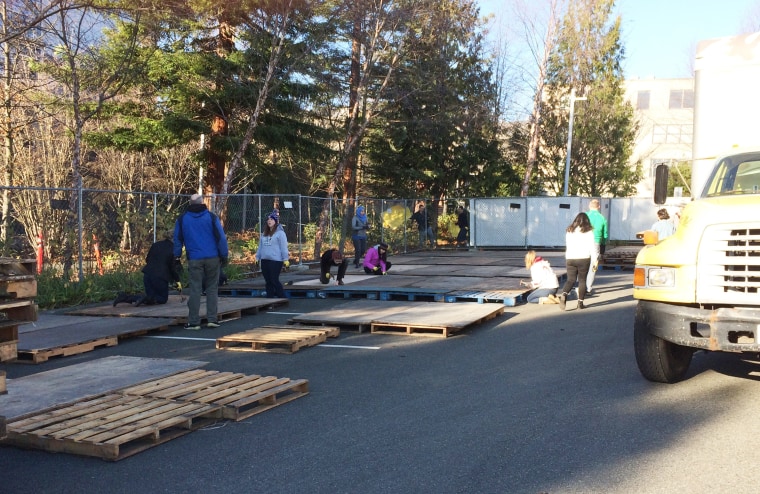When University of Washington students return from winter break to their campus in Seattle next month, they'll find dozens of homeless people living in a parking lot — at the school's invitation.
The 10,000 square-foot encampment is a roving tent city that moves to a new location every three months, part of a larger attempt to deal with the city's rising homeless population.
The university offered to host the camp after students campaigned for it to become more actively engaged in ending the homelessness crisis. At last count in February, the number of people sleeping on the city's streets was more than 4,500, a 19 percent increase over the previous year. Another 2,900 people were in transitional housing, and 3,200 in shelters, according to the Seattle/King County Coalition on Homelessness.

In order to persuade university administrators to allow the camp on site students had to show it would contribute to learning. So when they return from break on Jan. 3, students in eight courses, ranging from English to the environment to nursing, will work with the camp to deepen their understanding of homelessness' impact on individuals and society.
"We want the maximum number of students to get the opportunity to be enriched by Tent City 3’s presence here," said Sally Clark, the university's director of regional and community relations.
Tent City 3 is more than 15 years old, constantly negotiating new locations. It has spent time on two other college campuses in Seattle, and the positive experiences there made the University of Washington site attractive, organizers said.
“We just want to learn more about what its like to experience homelessness,” said Rebekah Lee, a 22-year-old senior and a member of the communications team for Tent City Collective, the group that has been pushing for the university to host Tent City 3.
"They are our neighbors, and they should be cared for like our neighbors," Lee said.
A large portion of the residents are older and disabled, but many others have regular jobs and help keep the camp running. The camps feature communal areas, including kitchens and showers, depending on the availability of electricity and running water.

The University of Washington site, on the school's west campus, is relatively convenient for residents who work near the city's center, said Andrew Constantino, 41, who has lived with his girlfriend at Tent City 3 for nine months.
"Everyone is excited, mainly because this is a much better site," he said.
But he and others had to overcome concerns that they'd be living in a "fish bowl," watched by people waiting for them to make a mistake.
That began to change over the weekend, when more than 100 student volunteers helped them move in.
Asked what he'd tell skeptics, Constantino said: “Come take a look.”
He added, "They will see something that is at least boring. They’ll say, 'Wow what the hell,' or 'There’s just people doing day-to-day things.'"
